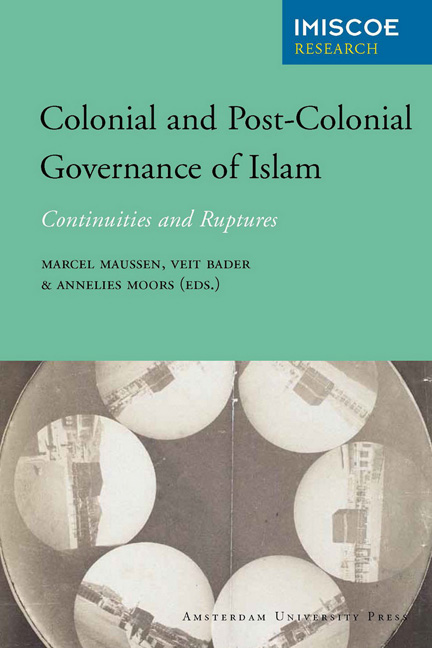9 - Continuities and Ruptures in the Governance of Islam in Malaysia
Published online by Cambridge University Press: 05 February 2021
Summary
The question of the institutionalization or the accommodation of Islam in law can be compatible with democracy and the rule of law cannot be deduced from some essence of religions supposedly inscribed in the scriptures. Rather, they are the outcome of political struggles that push Islam toward democratic or authoritarian directions. (Bayat 2007: 8)
Introduction
The application of Islamic family law by Islamic courts of law has always been viewed with great suspicion in Western Europe. In a number of countries, emotions already run high in public debates about the headscarf, so it is no wonder that the issue of the application of Islamic law by sharia courts is very controversial. Apart from lengthy discussion the British have been involved in since the 1990s concerning recognition of a separate system of Islamic family law that would apply to British Muslims (Poulter 1998: 195-236), there have recently also been discussions in Canada about the establishment of an Islamic arbitral tribunal (Bader 2009: 49-72). Western countries uphold a tradition of a uniform family law that applies to everyone, regardless of origins, beliefs or ethnicity. Consequently, they are wary of the application of any group-differentiated family law, as it would lead to apartheid and segregation. Usually this view is supported by reference to the most striking and infamous features of Islamic family law, features believed to be immutable and irrefutable, including polygamy, marriage without the woman's consent, forced marriages involving minor girls, the one-sided repudiation of the marriage by the husband (talaq), the ban on Muslim women marrying non-Muslim men and the granting of custody of any children above age seven to the father. Another source of sharia law's negative connotations in the West is provided by the punishments it prescribes, such as the amputation of hands for theft and flogging for adultery, deemed barbaric, inhumane and cruel. Even a venerable institution such as the European Court of Human Rights (ECHR) declared: ‘Syariah is incompatible with the fundamental principles of democracy as set forth in the ECHR.’
In the Western debate about legal pluralism, the state's accom modation of religious or customary law and courts to govern marriage and divorce affairs is usually seen as a choice in favour of ‘culture’ rather than ‘rights’.
- Type
- Chapter
- Information
- Colonial and Post-Colonial Governance of IslamContinuities and Ruptures, pp. 175 - 198Publisher: Amsterdam University PressPrint publication year: 2012



